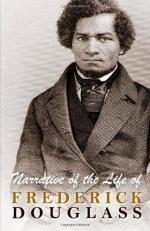In the course of his Narrative, he relates two instances of murderous cruelty,—in one of which a planter deliberately shot a slave belonging to a neighboring plantation, who had unintentionally gotten within his lordly domain in quest of fish; and in the other, an overseer blew out the brains of a slave who had fled to a stream of water to escape a bloody scourging. Mr. Douglass states that in neither of these instances was any thing done by way of legal arrest or judicial investigation. The Baltimore American, of March 17, 1845, relates a similar case of atrocity, perpetrated with similar impunity—as follows:—“Shooting a slave.—We learn, upon the authority of a letter from Charles county, Maryland, received by a gentleman of this city, that a young man, named Matthews, a nephew of General Matthews, and whose father, it is believed, holds an office at Washington, killed one of the slaves upon his father’s farm by shooting him. The letter states that young Matthews had been left in charge of the farm; that he gave an order to the servant, which was disobeyed, when he proceeded to the house, obtained a gun, and, returning, shot the servant. He immediately, the letter continues, fled to his father’s residence, where he still remains unmolested.”—Let it never be forgotten, that no slaveholder or overseer can be convicted of any outrage perpetrated on the person of a slave, however diabolical it may be, on the testimony of colored witnesses, whether bond or free. By the slave code, they are adjudged to be as incompetent to testify against a white man, as though they were indeed a part of the brute creation. Hence, there is no legal protection in fact, whatever there may be in form, for the slave population; and any amount of cruelty may be inflicted on them with impunity. Is it possible for the human mind to conceive of a more horrible state of society?
The effect of a religious profession on the conduct of southern masters is vividly described in the following Narrative, and shown to be any thing but salutary. In the nature of the case, it must be in the highest degree pernicious. The testimony of Mr. Douglass, on this point, is sustained by a cloud of witnesses, whose veracity is unimpeachable. “A slaveholder’s profession of Christianity is a palpable imposture. He is a felon of the highest grade. He is a man-stealer. It is of no importance what you put in the other scale.”




